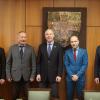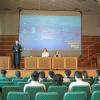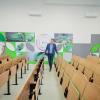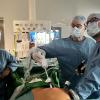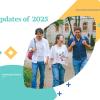Individual Involvement is Crucial in Green Thinking
2021
Apr
01
The Green AURA online climate protection conference was held on 31 March, organized by the University of Pécs. After introducing the Green AURA initiative, promoting the development of environmentally conscious local communities, invited speakers from Croatia, Denmark and Hungary shared best practices and valuable know-how, and provided inspiration how to establish a good cooperation with the citizens, companies and local governments alike.
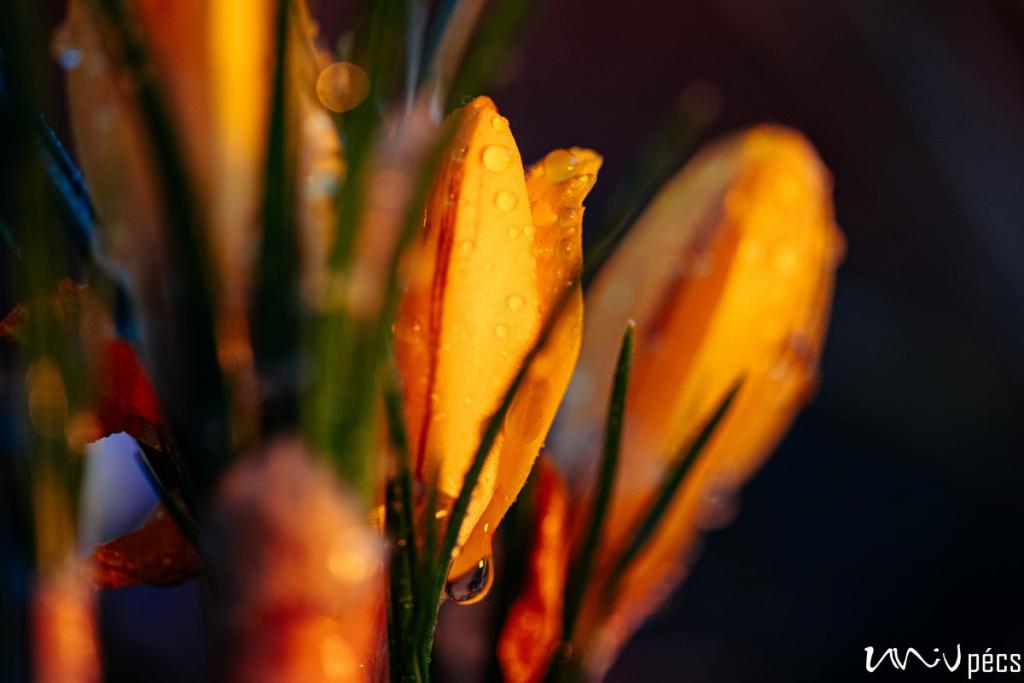
After the welcome speech of Attila Miseta, rector of the University of Pécs, Balázs Borkovits, coordinator of the Green AURA Project at the University of Pécs introduced the university’s green activities, highlighting the HEI’s success in the GreenMetric World University Rankings. Concerning the current project, he explained that Green AURA is an acronym for the project ‘Setting up cooperation of GREEN Communities with Augmented Reality Assisted living labs’. This project supports the fight against climate change by citizens’ involvement. The objective is twofold: raising awareness and encouraging cooperation on various levels. To reduce the effects of climate change, local inhabitants need to be informed about all available tools that may contribute to the mitigation and adaptation to this phenomenon, and they should be encouraged to take advantage of using these developments every day. In addition, to increase their commitment and ensure the usability of these tools, companies and citizens should be involved in research activities that underpin further developments.
Therefore, four cooperating organizations will jointly set up augmented reality supported exhibitions to introduce energy efficiency, water retention, climate friendly transport, waste management and many other tools available in the Hungarian Croatian cross-border area.

András Tálos, programme manager of the Hungarian-Croatian Cross-border Co-operation Programme Joint Technical Secretariat (JTS) explained that the inclusion of 21st technology gave the Green AURA project a considerable advantage. He also introduced the commission’s five priority objectives for the future:
a smarter, greener, low-carbon, more connected and more social Europe.
From the Croatian project partner city, Koprivnica, Zvonimir Perko, project manager, at the Regional Energy Agency North presented their vision to become one of the key stakeholders in creating and implementing a sustainable energy system in Croatia. By establishing the first Croatian Living Lab in 2019, they have created an environment where partners have the conditions to test, compare and promote their products, and users can try and evaluate their products in the real environment. In cooperation with Green AURA, they plan to expand their existing Living Lab with AR solutions. Maja Balaško Kiš, Head of European Affairs, City of Koprivnica introduced the city, which has won several awards for progress in the field of sustainable and smart development, and takes pride in the high quality of life that the city can provide for its 30 854 citizens. Koprivnica also known as the “city of bicycles” is a university city, and a pioneer in electromobility.

On behalf of the Pécs Urban Development Company (PUD), Bálint Tasnádi, project manager introduced the completed and current projects, which includes all EU and investment projects of Pécs. The non-profit organisation owned 100% by the municipality, is involved in more than 80 projects, from waste management, to developing a solar power plant and the modernization of rainwater drainage systems.
Future plans within the Green AURA project include the establishment of a ‘living lab’ to facilitate research related to climate protection and provide the possibility for stakeholders and the public to test and comment on new developments. The cooperation is funded by the Interreg V-A Hungary-Croatia Co-operation Programme 20142020. By looking at another living lab, participants could gain more insight into the concept of the establishment. Jesper Steenberg, Head of ENERGY & WATER – Greater Copenhagen Living Lab and Head of Innovation for Environmental Educational Services, City of Copenhagen introduced the services they offer focusing on the co-creation of sustainable city solutions and emphasized the importance of education in this endeavour. The collaborative living lab with its annual influx of 25 000 visitors offers an overview of their 64 focus areas on 3 levels, from the user level, through the technology level to the macro level, where systemic change can happen.
Watch a video about the Energy & Water - Greater Copenhagen Living Lab »
- Log in to post comments
University of Pécs | Chancellery | IT Directorate | Portal group - 2020.

